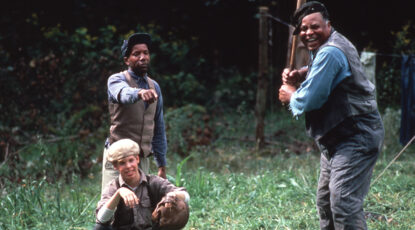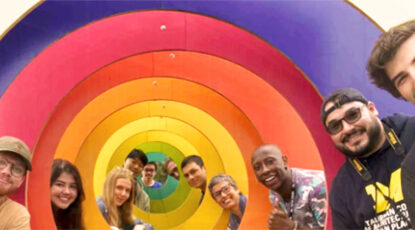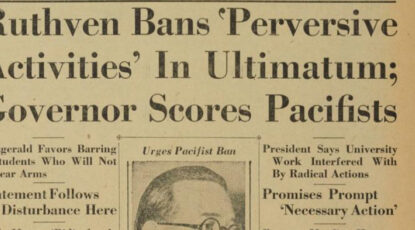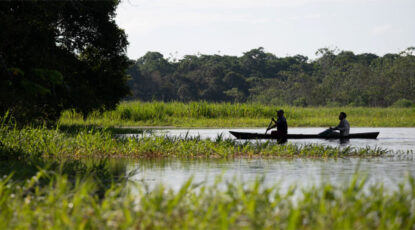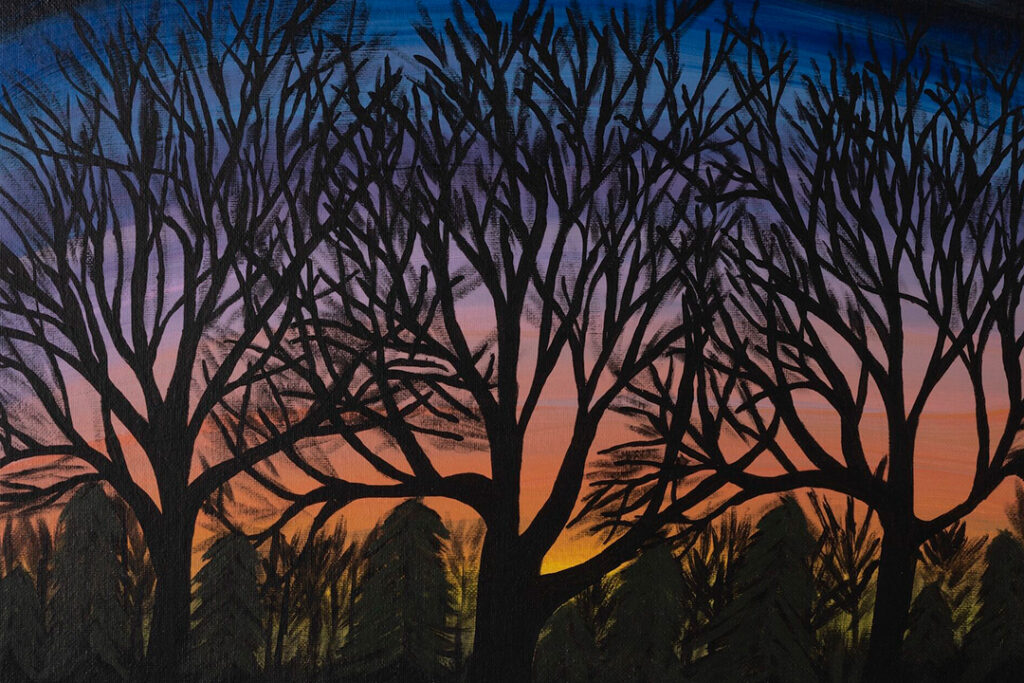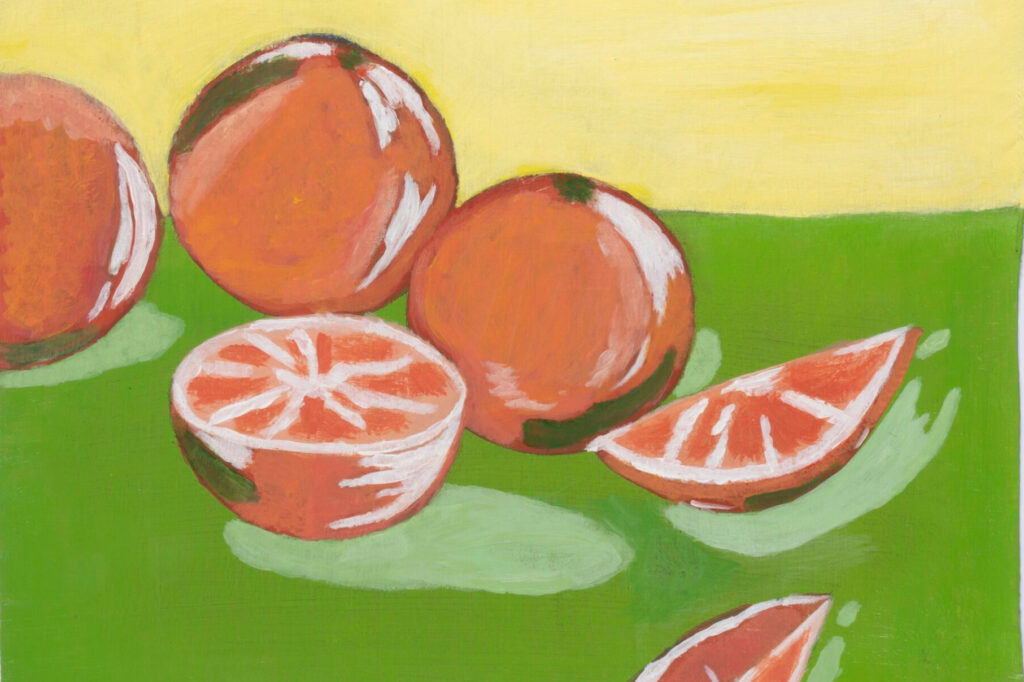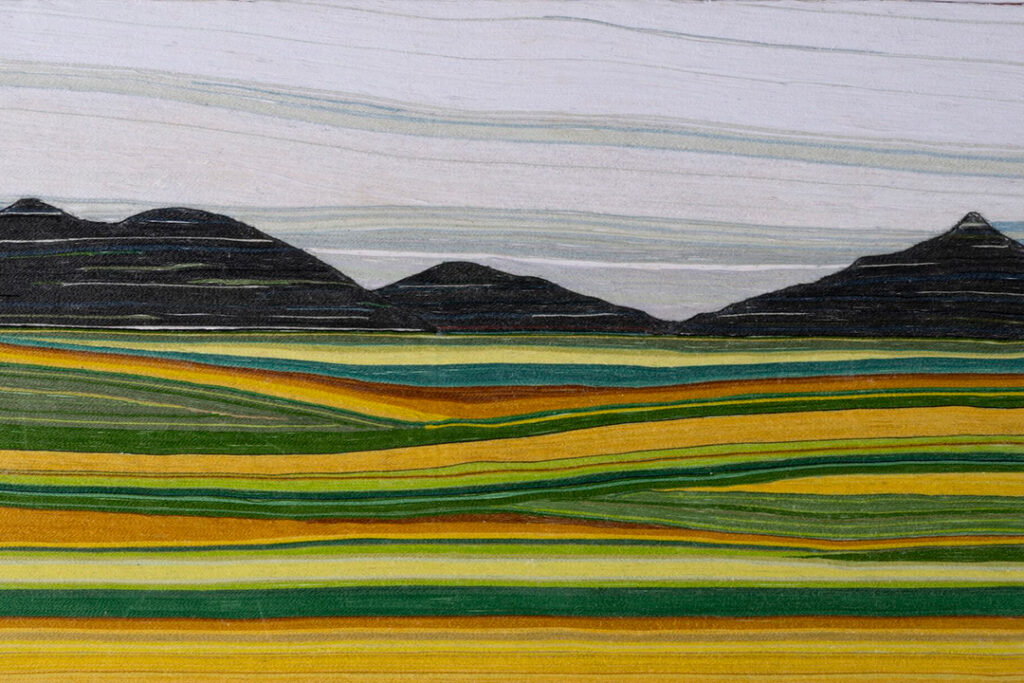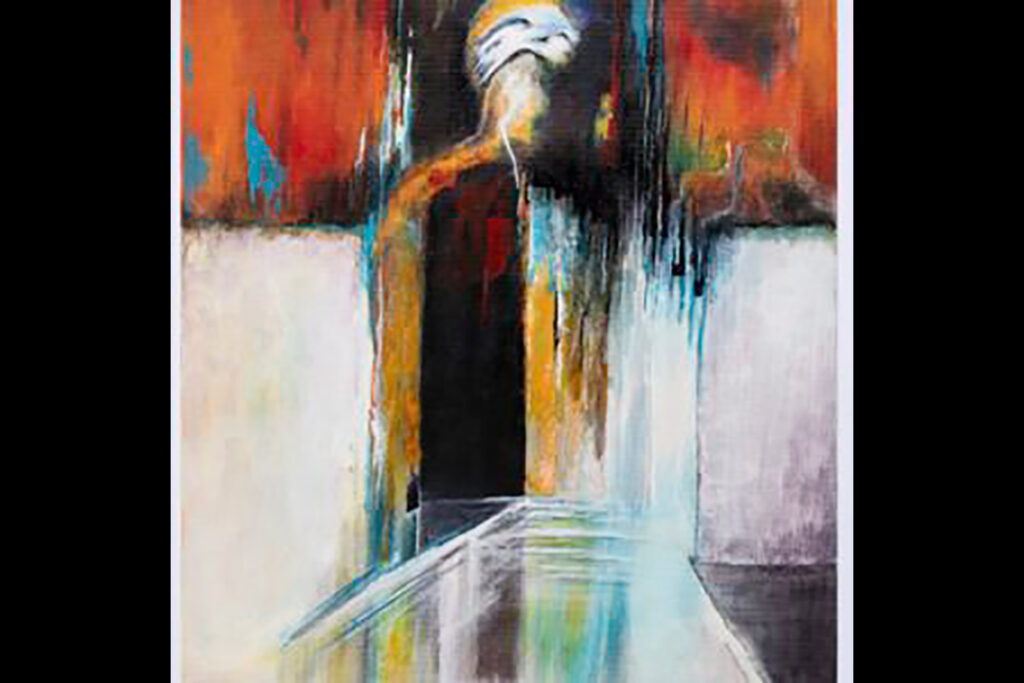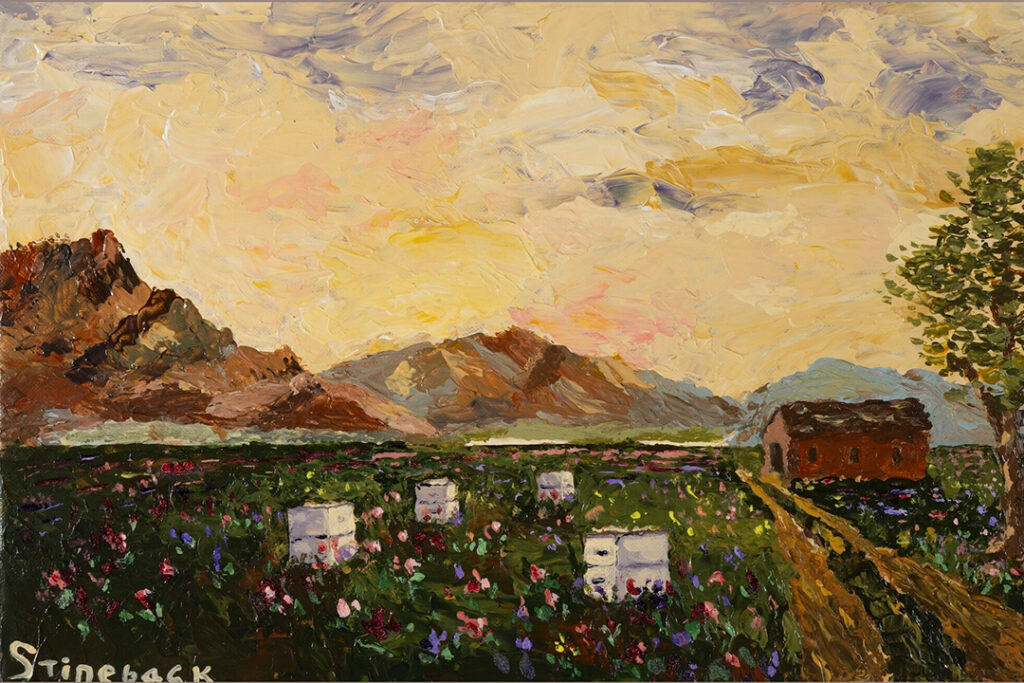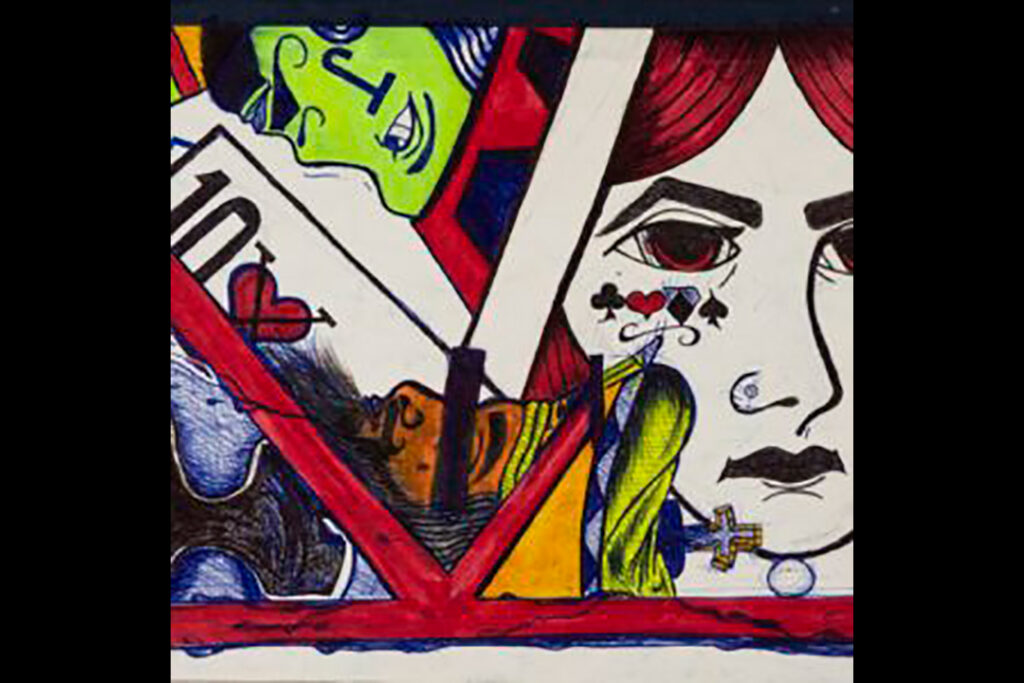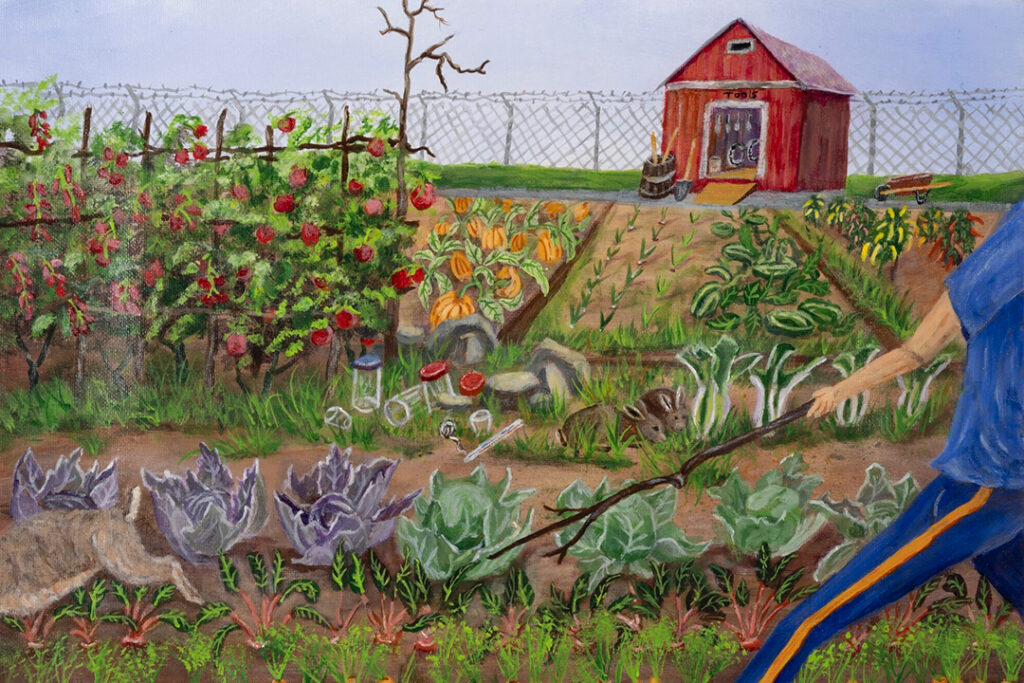The order that launched the Revolutionary War, 250 years later
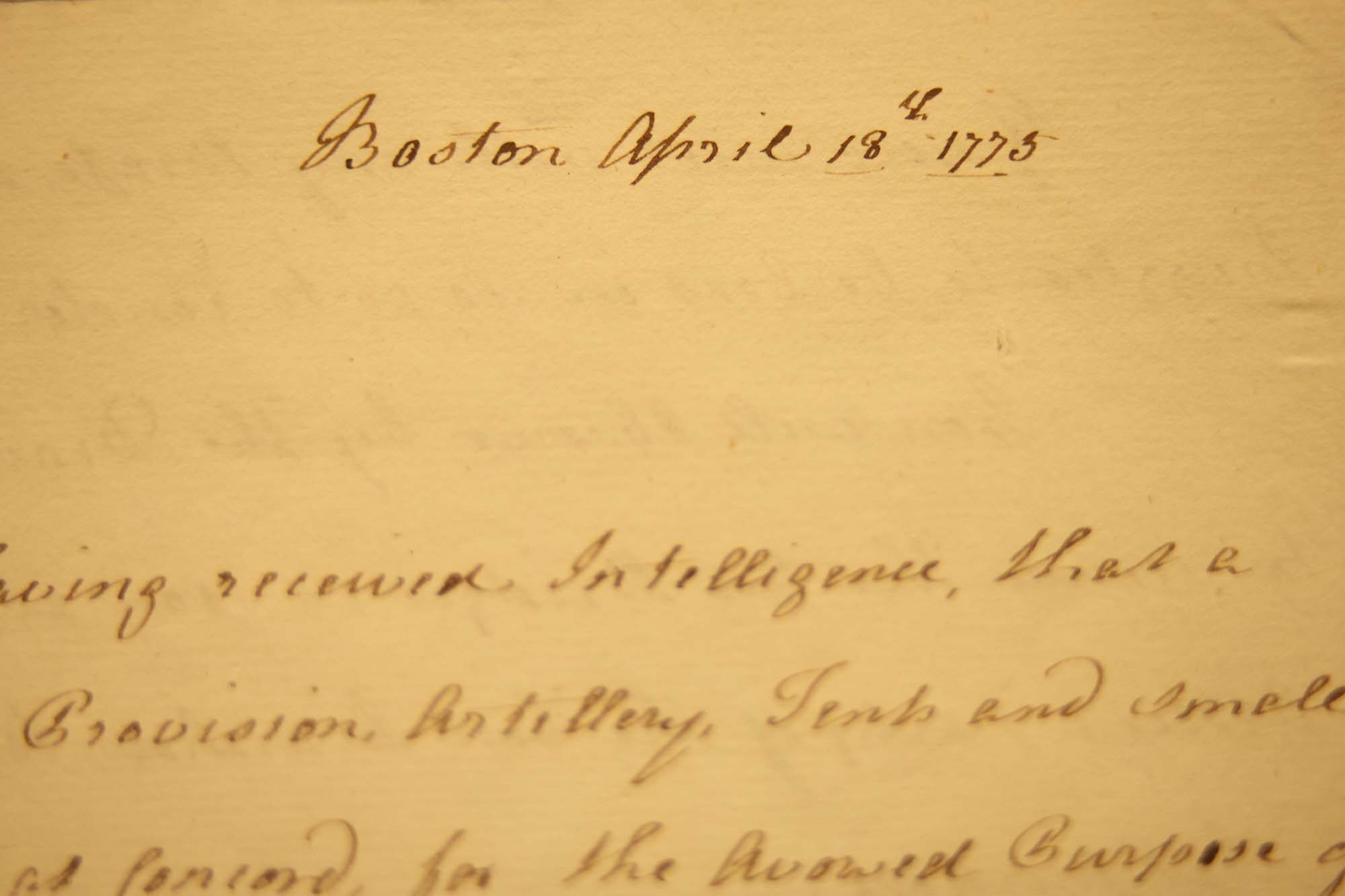
The ‘shot heard ’round the world’ can be traced to one manuscript containing the orders for the Concord Expedition on April 18, 1775. The quill-to-paper draft orders, penned by British Army officer Thomas Gage, sparked the Battle at Lexington and Concord the following day. U-M’s Clements Library holds the document.
-
Happy trails: Conservancy brings universal access to seven trails in northwestern Michigan
The Grand Traverse Regional Land Conservancy has created more than three miles of accessible trails since 2016 when the Overlook Trail at Arcadia Dunes opened. It’s all part of the conservancy’s work since 1991 under the leadership of Glen Chown, who earned his bachelor’s and master’s degrees from U-M’s School of Environment and Sustainability.
-
Unlocking ocean power: $3.6M for community-centric wave energy converters
Coastal communities are partnering with a multidisciplinary research team to determine the best way to harvest wave energy at Beaver Island, Michigan, and Nags Head, North Carolina. Wave energy could power millions of homes, but to make a splash in the industry, the tech must balance engineering, socio-economic and environmental trade-offs, researchers say.
-
James Earl Jones: The human special effect
Retired Michigan Today columnist and beloved film professor Frank Beaver reflects on the life, career, and creative legacy of award-winning actor James Earl Jones, who died Sept. 9. As the distinctive voice of iconic ‘Star Wars’ villain Darth Vader, Jones has long cultivated an ardent fan base among his fellow alumni. Michigan football fans hear him each fall as the voice on the Wolverines’ pre-game hype video.
-
Taking it to the streets: How the humanities can reframe urban renewal
Research-driven collaboration with community leaders is nothing new, but the Michigan-Mellon Project on the Egalitarian Metropolis tweaked the model in a subtle but profound way. Faculty leaders prioritized history, literature, and the visual arts on the mission toward Detroit’s inclusive recovery. With a decade’s worth of results on the books, they’ve built a convincing case for the humanities.
-
The peace protesters vs. the president: 1935
As Adolf Hitler’s power and influence expanded in the lead-up to World War II, college students across the U.S. aligned with their European counterparts in a strike against war and fascism. When they walked out of classes to take an American version of the Oxford Pledge, they sought to preserve the fragile peace in Europe. As with most student protests, the movement disturbed the peace at Michigan.
-
Watt a journey: Lighting up the Amazon
U-M researchers and engineering students traveled to the far reaches of the Amazon rainforest to help light up rural schools and develop innovative incinerators. Their efforts will support local autonomy, preserve residents’ unique habitats, and generate ecotourism.
Columns
-
President's Message
Reaffirming our focus on student access and opportunity
U-M seeks to ensure every student will rise, achieve, and fulfill their dreams. -
Editor's Blog
Peace out
It's a mad, mad, mad, mad world out there. -
Climate Blue
Keeping our focus on climate
As federal support for climate science wanes, Ricky Rood remains hopeful. -
Health Yourself
Are you an ‘ager’ or a ‘youther’?
Why do some people appear younger or older than people born in the same year?
Listen & Subscribe
-

MGo Blue podcasts
Explore the Michigan Athletics series "In the Trenches," "On the Block," and "Conqu'ring Heroes." -

Michigan Ross Podcasts
Check out the series "Business and Society," "Business Beyond Usual," "Working for the Weekend," and "Down to Business." -

Michigan Medicine Podcasts
Hear audio series, news, and stories about the future of health care.
In the news
- USA Today US consumer sentiment and expectations fall again in April as tariff uncertainty continues
- CNN Beyond Ivy League, RFK Jr.'s NIH slashed science funding across states that backed Trump
- Detroit Free Press Inflation is slowing. Wages are up. So why does life feel costly for many Michiganders?
Creativity and connection across prison walls
One of the world’s largest and longest-running exhibitions of incarcerated artists is back with new programming designed to foster connection and deepen public understanding of incarceration in Michigan. The 29th annual Exhibition of Artists in Michigan Prisons, curated by U-M’s Prison Creative Arts Project, showcases 772 artworks by 538 artists incarcerated in 26 state prisons. The Duderstadt Center Gallery on U-M’s North Campus is presenting the artwork through April 1.



